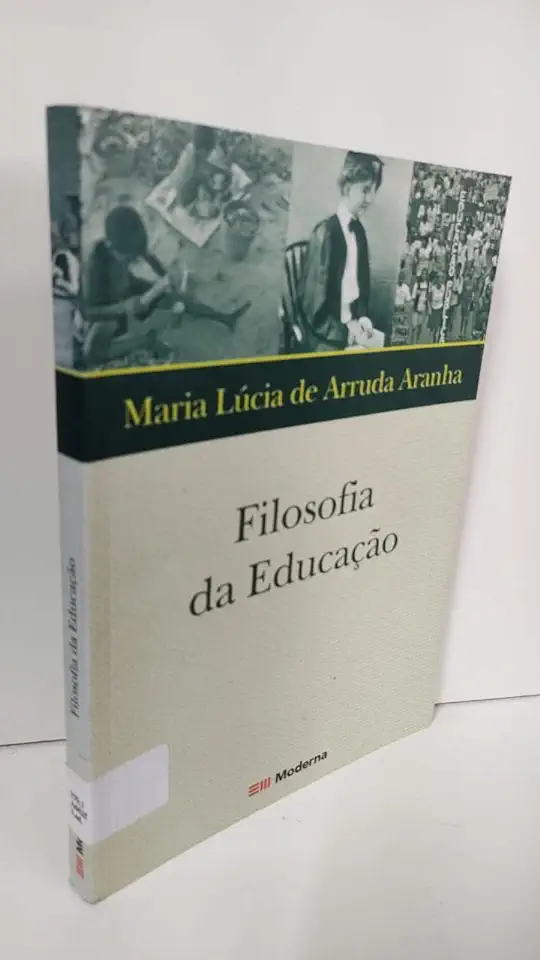
Philosophy of Education - Maria Lúcia de Arruda Aranha
Philosophy of Education: A Comprehensive Guide to the Field
Introduction
Philosophy of education is a branch of philosophy that examines the nature of education, its goals, and its methods. It is a complex and multifaceted field that draws on a variety of disciplines, including philosophy, history, sociology, and psychology.
In this comprehensive guide, Maria Lúcia de Arruda Aranha provides a thorough overview of the philosophy of education. She begins by exploring the different ways in which philosophers have defined education, and then goes on to discuss the various goals that education can serve. She also examines the different methods that can be used to achieve these goals, and the challenges that educators face in implementing them.
The Nature of Education
Philosophers have debated the nature of education for centuries. Some have argued that education is simply the transmission of knowledge from one generation to the next. Others have argued that education is more than just the transmission of knowledge; it is also about the development of critical thinking skills and the ability to make informed decisions. Still others have argued that education is about the cultivation of virtue and the development of a good character.
The Goals of Education
There are many different goals that education can serve. Some of the most common goals include:
- The transmission of knowledge: Education can help students to acquire the knowledge and skills they need to succeed in life.
- The development of critical thinking skills: Education can help students to develop the ability to think critically about information and to make informed decisions.
- The cultivation of virtue: Education can help students to develop the virtues that are necessary for a good life, such as honesty, courage, and compassion.
- The development of a good character: Education can help students to develop a good character, which is essential for a happy and fulfilling life.
The Methods of Education
There are many different methods that can be used to achieve the goals of education. Some of the most common methods include:
- Teaching: Teaching is the most common method of education. It involves the transmission of knowledge from a teacher to a student.
- Learning: Learning is the process by which students acquire knowledge and skills. It can occur through a variety of means, such as reading, writing, listening, and observing.
- Discussion: Discussion is a valuable tool for education. It allows students to share their ideas and to learn from each other.
- Problem-solving: Problem-solving is another important tool for education. It helps students to develop their critical thinking skills and to learn how to apply their knowledge to new situations.
The Challenges of Education
Educators face a number of challenges in implementing their educational goals. Some of the most common challenges include:
- The diversity of students: Students come from a variety of backgrounds and have different learning needs. Educators must be able to adapt their teaching methods to meet the needs of all students.
- The lack of resources: Many schools lack the resources they need to provide a quality education. This can include a lack of funding, a lack of qualified teachers, and a lack of access to technology.
- The changing world: The world is constantly changing, and educators must be able to adapt their teaching methods to keep up with the times. This can include incorporating new technologies into the classroom and teaching students about the latest developments in the world.
Conclusion
Philosophy of education is a complex and multifaceted field that is essential for understanding the nature of education, its goals, and its methods. This comprehensive guide provides a thorough overview of the philosophy of education, and it is an invaluable resource for anyone who is interested in learning more about this important field.
Why You Should Read This Book
If you are interested in learning more about the philosophy of education, then this book is a must-read. It is a comprehensive and well-written guide that will provide you with a solid foundation in this important field.
Here are a few reasons why you should read this book:
- It is comprehensive: This book covers a wide range of topics in the philosophy of education, from the nature of education to the goals of education to the methods of education.
- It is well-written: This book is written in a clear and concise style that is easy to understand.
- It is thought-provoking: This book will challenge you to think critically about the nature of education and its role in society.
- It is relevant: This book is relevant to anyone who is interested in education, from teachers and administrators to parents and students.
If you are looking for a comprehensive and thought-provoking guide to the philosophy of education, then this book is for you.